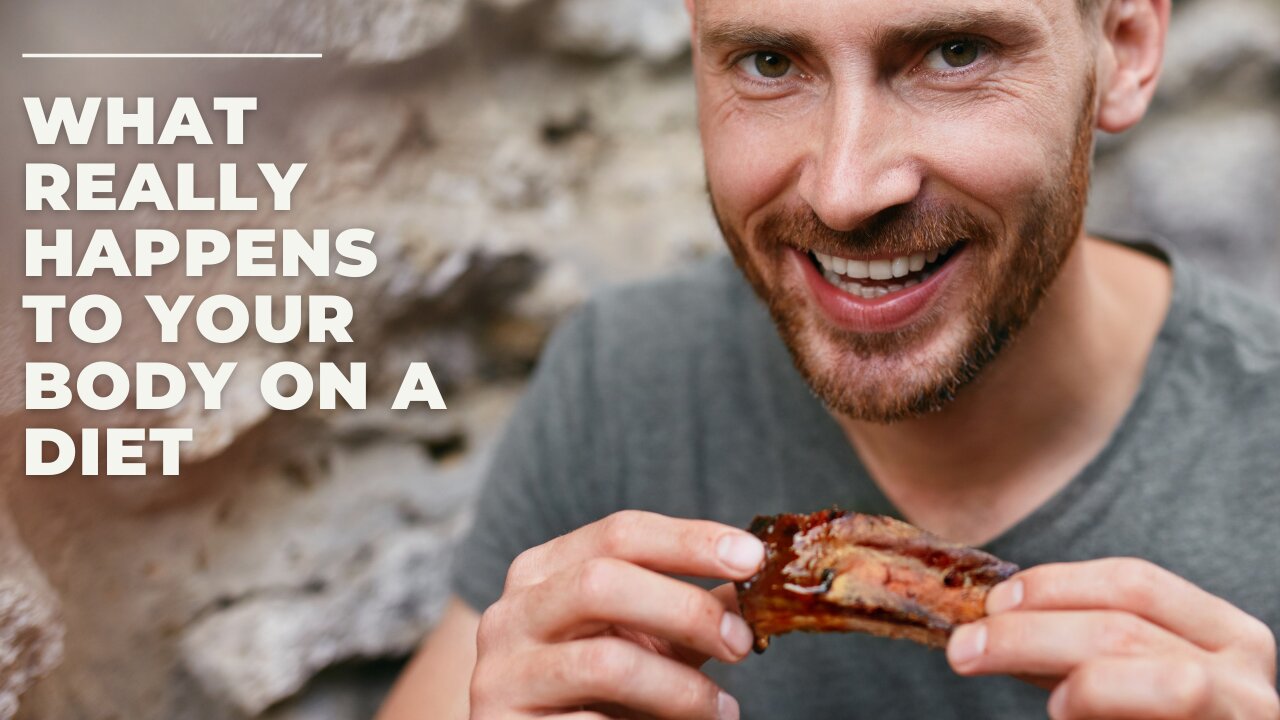Premium Only Content

what really happens on your body adite
What really happens to your body on a diet
#bodyonadiet #diet #body
What really happens to your body on a diet
At first, it’s simple math — as you decrease the number of calories you’re consuming (whether by counting points, eliminating categories of food, or restricting the hours when you can eat) you will certainly lose weight.
But then your body and your brain catch on, and they try to stop the process.
In essence, your body thinks you’re starving and it's trying to save you, protecting you at all costs.
This is largely thanks to the hormone leptin, which is produced in fat cells, explains Caroline Apovian, MD, professor of medicine and pediatrics and director of the Nutrition and Weight Management Center at Boston University Medical Center.
“One of the main functions of leptin is to protect your fat stores because you need fat to make sure that you have an energy source in case there’s no food available,” she explains.
Leptin is what tells your brain you’re full — as you reduce the amount of fat in your body, you produce less of it, so you don’t get that same sense of satiety you once did after dinner or a midday snack.
Instead, your body starts receiving hormonal messages saying, “All hands on deck!
We have to get this person to gain weight!”
One of the ways it does this is to send a message to your thyroid to slow down your resting metabolic rate (RMR) — the number of calories your body burns to keep you breathing and digesting.
If you typically burn a certain number of calories a day at rest, your RMR may slow down to burning a few hundred fewer a day, as your body adjusts to hold on to as much energy as possible to use later.
In fact, one headline-making study that followed contestants from The Biggest Loser six years after they appeared on the weight-loss show found that most had not only regained the weight and body fat they had lost, but their RMR had dropped from an average of 2,607 calories per day before the show to 1,900 calories a day six years later.
The contestants’ slowed metabolisms may not have been the only reason they regained the weight, but it is true that the more you diet, the fewer calories you burn, meaning you have to restrict your diet, even more, to keep losing weight, or even to maintain your current weight.
Your happy weight
This life-preserving system is called “defense of body weight,” and its goal is to keep you within a 10 to 20-pound range, or your “set point” weight.
Bacon describes the set-point system as similar to a thermostat, with your body constantly making adjustments to stay at the same weight.
“There’s a certain fat level that your body wants to maintain, and when you drop below that range, your body's going to put all kinds of mechanisms into place to try to get you back in a healthy range,”
Bacon says.
“At first it will try to elicit your help, by making you feel hungry [that’s thanks to hormones such as ghrelin].
But if that doesn’t work, it can get more aggressive, by slowing down your metabolism.”
But wait, there’s more: Not only do you get the double whammy of feeling hungrier and having a slower metabolism, but the types of food you crave may change, too.
“When you lose body fat because you're dieting, your hunger center is triggered, and that includes the rewards center, which makes you crave sweets because that’s the easiest way to get a lot of calories,” says Dr. Apovian.
You might even get cravings for foods you would normally walk right by without a second thought, Bacon adds: “You're willing to eat anything because your body's trying to just get you the calories that it wants to restore.”
drag_indicator
Losing touch with your own hunger
add_circle
Another side effect of dieting: When you pay attention only to external rules of what and when to eat — and how guilty you should feel if you eat the “wrong” thing — you can become disconnected from the cues from your own body, says Rumsey.
He points out that researchers have seen some of the same behaviors — such as binge-eating and bulimia — in people who are dieting and in people who are dealing with a true scarcity of food.
“We get disconnected from our feelings of hunger, fullness, and satisfaction.
And we also lose that sense of food as being something we enjoy, that feels good in our body,” Rumsey says.
-
 36:44
36:44
AMERICA First with Sebastian Gorka
4 years ago $14.31 earnedWhat Really Happens Now. Sebastian Gorka with Charlie Kirk
8.21K30 -
 1:43
1:43
NowYouKnowEnglish
5 years agoWhat really happens to your body when you restrict salt too much?
1.99K -
 2:53
2:53
KSHB
4 years agoWhat happens to your mail-in ballot
511 -
 3:20
3:20
WXYZ
4 years agoWhat happens to your ballot once it is received
29 -
 12:16
12:16
Lynda Cromar Online Training
4 years agoWHAT IS REALLY IMPORTANT IN CREATING YOUR BUSINESS
22 -
 3:17
3:17
TheMakeoverGuy
5 years agoWhat Really Happens In a MAKEOVERGUY® Company Meeting: A MAKEOVERGUY® Moment
361 -
 2:29
2:29
KGTV
4 years agoWhat happens next after Capitol riots
4.31K16 -
 0:05
0:05
BigMac1775
4 years ago $0.02 earnedWhat happens when you let your friends cut your lawn.
2261 -
 3:08
3:08
KJRH
4 years agoCapitol under siege - What happens next?
3.67K9 -
 LIVE
LIVE
Lofi Girl
2 years agoSynthwave Radio 🌌 - beats to chill/game to
182 watching